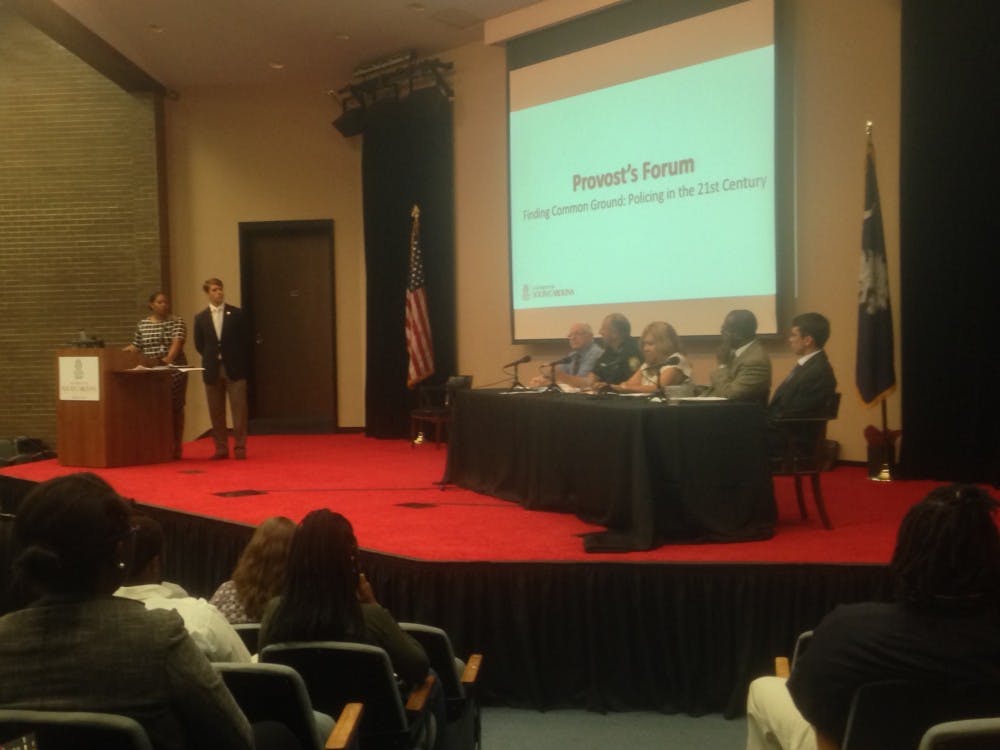Cooler heads prevailed Thursday evening when students and faculty gathered at the USC School of Law to attend a forum on policing in the 21st century.
Guests mingled over refreshments in the law school lobby prior to adjourning to the auditorium for the main event. The audience was treated to a spirited but level discussion on the politics of modern police operations, but it remains to be seen whether the topics floated by the five-member panel can be solved with lasting success.
The panel included active USC professors Geoffrey Alpert of the Department of Criminology, Todd Shaw of the Department of Political Science and Seth Stoughton of the School of Law. Joining them were Henrie Monteith Treadwell, the first African-American student admitted to USC and an associate director at Morehouse School of Medicine, and William “Skip” Holbrook, Chief of the Columbia Police Department (CPD).
Following opening statements from USC Provost Joan Gabel and Columbia Mayor Steve Benjamin, the panel fielded questions submitted online or asked by audience members. Topics ranged from the role of race in day-to-day police tactics to the proper method of conducting traffic stops. Discussion of the latter led to one of the evening’s lighter moments, when Stoughton argued against the use of aggressive tactics to subdue irritated motorists.
To illustrate his point, Stoughton rose from his seat and asked audience members on one side of the auditorium to stand. He led them through three stationary poses, each named after comic book superheroes.
After the participants were seated, Stoughton turned his attention to the other half of the audience and screamed “Stand the hell up! Do it now! Now! Stand up!”
Laughter ensued, but few spectators obeyed Stoughton’s command. Some who did only rose after several seconds of hesitation.
“I used [the routine] for the first time in a presentation on police culture to the National Association of Women Law Enforcement Executives, and I did it to demonstrate exactly the point that I demonstrated in here: The difference that expecting compliance or earning cooperation can have on other people’s actions,” Stoughton told The Daily Gamecock.
In his answers, Holbrook, a 25-year veteran of law enforcement, frequently emphasized the importance of community outreach in larger cities such as Columbia. He also expressed his belief that local citizens have responded well to CPD’s support.
“We have a community that demands that we are innovative, and I know they’ll hold us accountable for being a professional police agency,” Holbrook said. “I think we’re certainly on that right trajectory for not only embracing 21st-century policing philosophies and recommendations but also putting them to action.”
Aaron Greene, a first-year law student, commended Chief Holbrook and CPD for their work in the community, noting their appreciation for public priorities such as the use of body cameras.
But Greene warned that success in one city does not guarantee similar results elsewhere.
“We need more of this in our communities not just in Columbia, but how about Greenville? How about Charleston? How about other areas around the state? How about other states?” Greene said.
“If you stand for justice and truth, just don’t stand for it in your room.”

